Marty, before we get into the meaty topics that will follow, let's establish your credentials for readers who may not know you and your background.
-
1) MHProNews: Please tell us about your years involved in manufactured housing, including legal, as a community owner, expert on financing and any other. Include a sense of your MHC, financing and other business interests.
I’m now 70 years old and I look back to 1972, when as a summer intern I entered the mobile home business. I was a junior in law school and was working at Ray’s Homes, who operated owned and franchised lots up and down the east coast, from New Brunswick to Florida.
For you youngsters, 1972 and then 1973 following it were the absolute pinnacle of the mobile home industry, reaching almost 580,000 shipments both years. At today’s shipments level, that is about eleven years of shipments, in each year, back to back. Those were giddy times, and predictions of 1,000,000 annual mobile home production seemed heady, but few seriously doubted it could happen, there seemed no barriers.
There were factories building homes all the way from some constructing them in their garage to the industry giants, Champion and Fleetwood or their compatriots. Time dims my full memory of 1972 and ’73, but not the excitement of those incredible times.
What it does not dim is that our sales organization was a national scope powerhouse, selling over 5,000 new homes in 1973. Think of that, almost 1% of all national sales, in one small outfit run by 3 people! I was proud of that then and still am.
What I remember most about 1972 is a time I was asked to go to a local land lease community owned by our organization. The community had about 214 homes in it, as I remember, a very large community in our small State of Vermont.
I was to field resident complaints. As I recall, a modest rent increase had just gone in and there was an uprising. I was to go up and quell the unrest.
I arrived at 5:30 PM, alone, at the community ballpark, and I met with 200+ very angry folks, and since they had been playing softball there were lots of baseball bats in the hands of the angry. Lesson: never attend a resident meeting alone with 200 angry people with baseball bats in hand. Actually a number of lessons came from that incident, which later served me well in both the MH Community and the apartment business. After all, the folks who inhabit apartments and MH Communities are not so different.
I came back after law school graduation and spent the next five years managing the legal affairs of sales lots, calling on banks for our service company, doing other legal work, and giving zoning presentations for MH Communities and strip shopping centers. Let’s say that the strip center zoning was easy compared with zoning MH Communities in most eastern states, as it was a serious challenge, even in the 1970’s. Always the endeavor was contentious, costly and endless, not a good business model.
By 1977 I became a General Motors dealer, selling Chevys for 4 years, then Oldsmobile and Cadillac for another 5 years. Sad to say, as much as I liked selling cars, I could not succeed financially although my sales were excellent, but profits, not sales volume sets the business paradigm, in cars or MH, and I fell short there. At the time the U.S. auto business was under serious pressure from the foreigns, and GM was already a doomed giant.
Back I went to real estate and the MH business.
From 1985 until 1995 I ran fast and hard buying communities in several states. As I remember at one point I was in George Allen’s top 75 list or thereabouts of community owners. These were communities I owned mostly on my own, few partners, just bank and seller debt. And of course, whether it is equity money from public subscription or money partners, or purchase money debt, they can all be harsh masters, and the vicious real estate depression of the 1989-1993 and the RTC (Resolution Trust Corporation) had us all in workouts. Most of my friends and partners declared bankruptcy. I thought that foolish, as it seemed unnecessary. Lots of talking and court appearances, but I got through it in spite of $55 million in debt, in 1989 dollars.
Rather than bankruptcy, my own course was entirely different. I chose to be prickly, but reasonable. Prickly, in that I could not be easily rolled by the creditor, and reasonable in that sometimes a property is not working, and it needs to go to someone with greater resources.
By 1988 I had formed an MH chattel loan service company, representing a large number of northeast area banks in originating loans, for home only, going primarily into communities. The general downturn of 1989-1993, with a steep decline in MH sales and lots of repossessions, stopped the service company’s climb to the big loan numbers. But they ultimately did come. In 1998, our company, Mortgage Services, Inc. (MSI) originated over 6,500 loans, totaling $188 million in originations. Those are big numbers in chattel loans by a broker. But as proud as we are of our volume, our record of clean paper without games, is a greater source of pride.
We originated loans for Vanderbilt, Chemical/Chase Bank, The Associates, CIT Group and many others. As one lender said to me a couple years after they left the industry and was running off the portfolio, “If every loan we bought were like yours, Marty, we’d still be in the business.” Satisfying words, indeed, in an industry enshrined in the Lending World Hall of Shame for Fraud.
We hung on with ever-smaller loan volume throughout most of the 2000’s, finally calling it quits after 2008, when we could no longer make money and my eyes glazed over trying to reinvent myself.
In 1999 or thereabouts, I was elected Vice Chair of the Financial Services Division of MHI, a two year assignment, which then leads to a two year assigned as the chairman of the Division. But, the industry was cratering so quickly, that the then chairman’s company exited MH lending, dropped out of MHI, and my term of almost 4 years as Financial Services Division Chairman began quickly.
In spite of an industry decline of frightening proportions, for many the reality had not yet sunk in. Mid-2000s shipments ranging from 125,000 to 150,000 homes, only with the grace of God who sent hurricanes and the industry built homes to house the dispossessed. But for anyone who could put it together, it was obvious: things in the industry were unraveling very quickly with scant hope of recovery.
For almost ten years I wrote a monthly newsletter, “Marty’s News and Notes,” commenting on the scene in Trailerville. What was obvious to me seemed less obvious to many. The industry was putting itself in an ever-shrinking situation and was not lifting a finger to try to save itself. The MH Image Campaign was endlessly pondered, but in the end, powerful industry forces that would profit by a weak industry joined hands with industry nabobs who to this day contend that our present situation is just an industry pullback, to kill the image campaign. Today, the industry has no ability to do any general industry promoting being too small to raise the money.
The highlight emotionally of this fading late 2000’s era was my dis-invitation from a community owner’s conference I was accepted to attend. My ideas of the industry decline, its causes, potential cures, and likely outcome were too radical. “Lenders could make money, they just got scared,” they said. They’d be back. I reasoned with even “good” MH chattel portfolios into land lease communities suffering over 30% lifetime defaults, lenders were unlikely to return, and so they haven’t. My one satisfaction since is that those who dis-invited me to the conference have of late finally grasped what I was saying over 5 years ago. Welcome to the party, even if belatedly so.
I very much enjoyed my assignment with Fannie Mae from 2003-2009 as their factory built housing consultant. I tried, as did Fannie, to bring some useful and survivable lending programs to the industry, but essentially they were rebuffed. To the end, the industry wanted to shuck and jive lenders to take losses in their behalf. I found the people at Fannie to be very intelligent and knowledgeable. They knew how to research a subject.
In many regards industry performance and industry attitude have never meshed. One would think an industry which had shrunk by 80% would go into bodies they were soliciting for help with hat-in-hand. Instead, bolstered by the industry shibboleth of “America’s Most Affordable Housing Form,” demands were more common than requests. That operating form continues to this day! I call it Pit Bull lobbying.
My proudest moment was in October, 2004, when my peers at the MHI Financial Services Division awarded me the Totaro Award of outstandinglifetime achievement to the division and industry. An award of this type makes one feel that all those meetings, flights, conferences and commuters, time consuming and personally expensive as they are, did not go unnoticed.
.jpg)
.jpg)
2) MHProNews: Tell us what you think the outlook is for us on the legislative or lobbying fronts on initiatives to modify regulations with the CFPB (Consumer Financial Protection Bureau) in Washington DC and why.
Marty Lavin:
One must look at the world as it is, not as one wishes it to be. Since the enactment of the Patriot Act in this nation, government found that they could pass very onerous and controlling laws, with relatively muted public outcry. In fact, the general public mood was that we wanted to be regulated. “Me, I’m ok and can be trusted, but that guy over there, let’s put him in regulatory shackles,” seemed to be the prevailing attitude.
An onslaught of rules and regulation ensued (Osama, you won, pal!). Many of them came as a response to the 2008 financial crisis, leading to an endless array of rules, regulations and laws. Nothing was left to chance. Endless government employees were hired to man all fronts. People not wanting to sit around in their government office with nothing to do, wrote their hearts out with rules and regulations. This necessitated a whole new group of people to enforce the laws, to make sure knuckles were broken for transgressors. Dodd-Frank and the Alphabet Laws ensued, and who knows what else (ObamaCare).
And what industries were targeted?
Well, all those mortgage lenders who had caused or appeared to cause the 2008 fracas. One would think the manner in which our industry had responded to being entangled by the regulation was that was they had “clean hands.” The industry acted as though they had not caused any of the lending problems which brought the regulations. Forget that from 1999 until 2005 or thereabouts, millions of MH homeowners lost their homes to the depredations of our sellers and industry lenders and the highly flawed portfolios they originated. “But we gave them a chance for home ownership,” was the industry refrain. Some chance, when portfolios were originated with well over 50% defaults.
This led to many problems for the lenders, but the primary losers for those bad portfolios were the homeowners, and the investors who bought the portfolios, just as occurred in the 2008 mortgage disaster. In the MH 1999-2005 loan meltdown the plight of homeowners with lost homes, lost jobs, divorces, financial problems, moves for other housing and the emotional distress it caused seemed unreported and without concern by anyone. But did it escape the gaze of the regulators?
When these things occurred in the real estate lending meltdown of 2008, the scope was so great and consequences so extreme, that homeowner plight did not go unnoticed. To the contrary, many undeserving homeowners were given breaks they did not deserve. Little of that occurred in the MH debacle.
The CFPB arose from that wellspring; Chattel loan shenanigans led to homeowner/borrower consequences essentially identical to the mortgage mess, so why treat them differently? To say nothing of the industry reputation for loan fraud, and dealing with many financially fragile people who were not viewed as able to protect themselves.
Don’t misunderstand my drift; I’m simply reporting what I see as the motivation for the formation of the CFPB, and by extension, the prospects for any serious changes in their rules and regulations.
Were I sitting across the table from industry lobbyists, in the back of my mind is the knowledge that exempting the MH industry from these rules is loosening the grip on an industry who hasn’t acted as though their past lending was fair to the consumer.
Yes, as the industry claims, a few more homes might be sold if rules were relaxed, but the CFPB rules and regs do not by themselves stop a 580 FICO buyer from getting financed. That’s a self-sustaining process by industry lenders for the moment. But it might protect the 660 on up FICO MH buyer from some of the known operating defects from which the industry has suffered. That’s the thinking the industry faces in seeking changes.
So, what do I think the industry lobbying efforts will gain as to the CFPB? I seriously doubt that any meaningful loosening of regulations will occur as making the case for it is not easy. At best, a few more homes could be sold and financed to responsible buyers, but regulators do not see loosening regulations which simply allow people at the bottom to “buy” more MH, and suffer a high loss of homes. And that is what the industry seeks, at its heart. My advice, onerous as the regulations are, learn to live with them and take advantage of a new competitive factor introduced by CFPB. Master the requirements and get a leg up on those who will not, of whom there appears to be many.
3) MHProNews: What is your impression of the working relationship between various industry associations, HUD and the DOE?
Down through the years I have known both sides of the continuing lobbying drama. The industry wants this and that, most of which conflicts with the regulators desire to control the industry and protect the consumer. We now have a history of going at this since the late 1970’s, without any magical results for the industry. It has recently become a highly regulated industry which heretofore, though the industry viewed itself as highly regulated, it was not. That changed. Welcome to the new America where regulation of all stripes holds sway.
Of the major industry associations, MHI (Manufactured Housing Institute) has been the compromising industry element. While individual members have been combative, the association has tried to be firm, but compromise has not been unknown.
The other group, MHARR (Manufactured Housing Association for Regulatory Reform), has catered to the industry segments which feel we can go toe-to-toe with industry regulators and have our way with them.
I think if we took a long and serious look at the actual achievements of both associations, the record reveals little success by the pit bull faction, and some, though limited success from the compromisers. But what would we expect from an industry whose main claim is that it is America’s most affordable housing, when government now finds non-profits or developer-required low-income housing as the better vehicle to deliver affordable housing, not the MH industry. The industry has become suspect, and that is at the heart of the regulations, just as it was with the mortgage industry which brought on their highly increased regulatory burden.
I’ve written at some length in this publication in the past on this very matter of the associations, and a view of that might shed even more light on the subject as to my thoughts on our associations and their operating style and effectiveness.
I do not want to leave this matter of lobbying without speaking to the state associations.
All during my 40+ years in Trailerville, I’ve dealt with them. They have many very talented people involved and members can really get involved without the major time and money cost of national association meeting attendance. Some belong to both, but at my speeches at various state associations I met many I never saw in Washington, who obviously were very involved in state matters. Their record of storming the state capitols to seek redress shows how effective close relationships can be. We see an effectiveness locally we simply do not see on the national stage.
Locally we may represent a strong voice listened to. Nationally, even when we had a fairly strong PAC $$$$, we were a minor player in most regards and were treated as such. Today with our PAC having the same money as the allowance for an 18 year-old, we don’t get too much respect or time.
In most states, with strong associations, getting into the halls of power and talking with a regulator or politician who is a personal friend of yours yields excellent results. Would it be this action was transferable to DC. But in DC relationships seem to hinge on $$$$$.
4) MHProNews: What do you think would help the industry's working relationship with regulators?
Marty Lavin:
The industry needs friends. It has few if any in government, and none I know of in the non-profit world, which takes an ever greater share of attention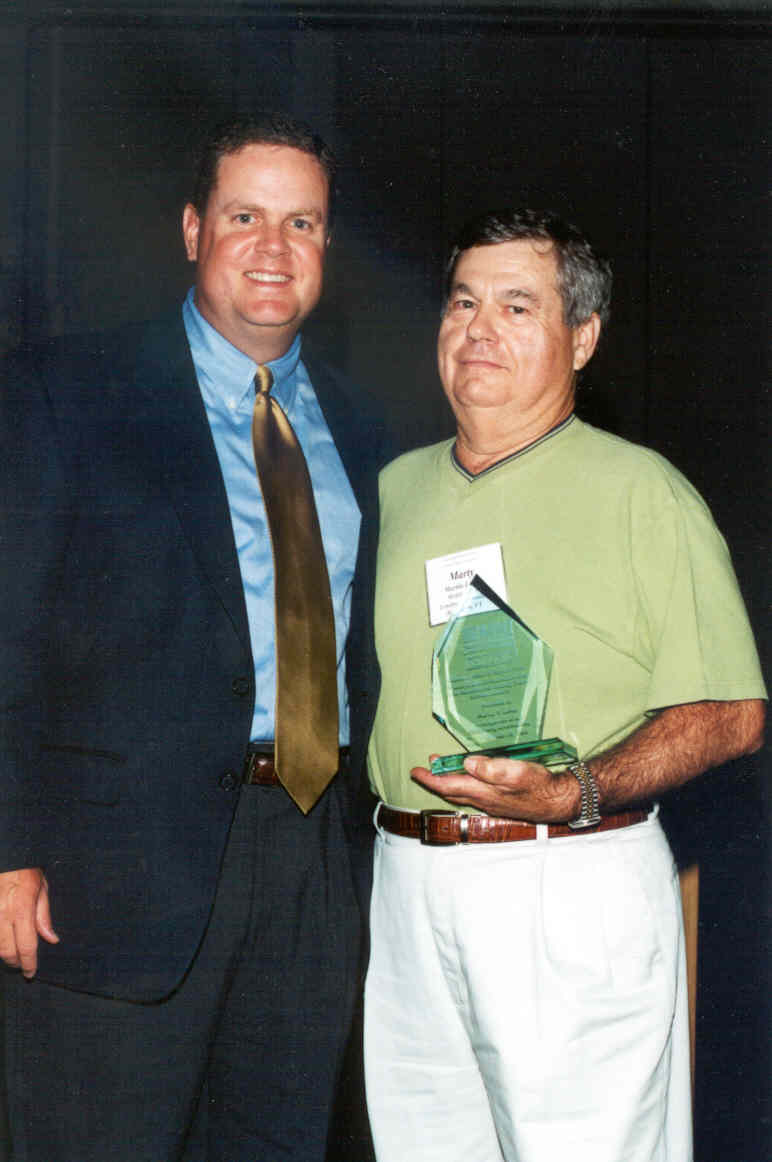 within government. As we’ve seen repeatedly, at all levels of government, a few loud critics, especially from non-profits, have enormous sway over board and regulators. Meanwhile, everything we say is questioned and mostly disbelieved.
within government. As we’ve seen repeatedly, at all levels of government, a few loud critics, especially from non-profits, have enormous sway over board and regulators. Meanwhile, everything we say is questioned and mostly disbelieved.
Long have I encouraged MHI to join folks like AARP, who is a serious critic of the industry, in trying to resolve issues between us.
Is the water too poisoned to join with various non-profits? Perhaps, but if we can work with them on specific issues, powerful forces could be unleashed on our behalf, which would greatly enhance our clout with government. Against us they seem to be prevailing. But we must get past the ingrained industry belief that we do no wrong and do not need to change or compromise.
By ourselves, in an essentially buggy whip industry (fading), I do not see the regulators doing anything we request, save at the margin. And any slide back from regulations will quickly be rescinded as soon as industry infractions occur once more. History tells us that will happen quickly. Just look at the number of industry people trying to slide around the numerous lending regulations now hung around our necks.
5) MHProNews: What do you think would be useful in having a positive impact on our lobbying efforts for modifications in Dodd-Frank with Capitol Hill?
Marty Lavin:
I fail to come up with any positive, easy solutions to our problems, heaven knows I tried. The industry reputation of “bad-actor,” who treats consumers unfairly, who closes communities to sell 150 families out so a Wal-Mart can be built, who champion chattel lending where very financial fragile people have high default rates in communities, who raise rents endlessly, have led to not only Dodd-Frank, but to highly restrictive zoning laws, rent control laws, and a myriad of lending and non-lending regulations. These have help squeeze the life from the industry.
But let’s confront the real culprit for the fall from 580,000 homes in 1973 to the 50,000 range today, even as population has increased by 50% since 1973.
Listen intently here, Junior, it ain’t the regulations which plague us.
It is this simple fact, like it or not: Chattel lending to the average customer drawn to our product is not sustainable because of high default rates and the attendant high loss upon resale of defaulted collateral.
I needn’t remind you this is a complex, intractable problem at least for now, and solutions are extremely elusive. If lenders lend only to those customers likely to default at less than 20% lifetime rates, then this is a small industry, as we now see. If lenders follow the lending regimen of 1960-2003, then defaults will lead to huge lender losses, even as sales soar, for a while anyway.
Since the ABS MH meltdown of the late 90’s and early 2000’s, lenders are aware of this fact. Sad to say, after innumerable industry meetings, I note only our lenders seem to appreciate this fact. The rest of the industry seems unconvinced, not wanting to be confused by the facts.
Thus the present extreme caution in lending, as even six months of lending error will likely bring an enterprise down, results from the reported facts of the ABS era. MH Lenders have decided that it will not be them who subsidize the industry through loan losses.
The GSE’s were probed to take over that role and even though they did so with real estate mortgages with disastrous ramifications, they refused to do so with MH.
HUD/FHA through its lending programs has always been probed to have them assume that role. Once the 50 year lender subsidy of the industry was withdrawn, reality set in as to the real size of the industry. Not the 1975 to 1999 trend line of 250,000 homes annually, but a mere 50,000 home shipments per year, was the real size.
And even if the hurricanes run wild again, will government turn to us again for homes?
That leaves only government-subsidized loan losses in order for the industry to be able to return to those golden 250,000 annual home shipments. So far every government agency has refused to do so, especially after the losses suffered in the Title I, Chattel Loan program, which the GAO report demonstrated was a serious loser. No one wants to be our bitch.
I dare say that the loan losses and its connection to industry size were well recognized by some by the late 1990’s, when I heard a senior GSE official say that only with government subsidies could the industry succeed once lenders retreated. That hasn’t happened. I was gape-jawed at the time, but how right they were!
So going to Capitol Hill on Dodd-Frank almost seems like deck chair moving. Let’s suppose all Dodd-Frank and other new lending license requirements were repealed, does selling self-financed used homes to 580 FICO borrowers save the industry?
I think not and clearly stated as such years ago when an industry scribe was waxing eloquent about the potential for self-finance to save the industry. It is not going to happen for a variety of reasons, and I told him so as well. It may help some individual organizations, but the entire industry? Yeah, right.
6) MHProNews: What closing thoughts would you like to leave with industry readers today?
Marty Lavin:
Tony, in those dozens of “Marty’s News and Notes” I wrote in the 2000’s I proposed many changes in the industry operating model I thought would help. Of course, most all of them were unenforceable, were likely to be violated by many, and some were deemed to make industry action more difficult, as though if not enacted the industry would get better and easier.
The Image Campaign was an excellent example. After Roper Associates polled the public on industry public perception, their report to the industry said that in their 30+ years of polling, no industry had been so poorly perceived by the public and their customers. This was strong incentive indeed for an industry seeking to refurbish itself. We did nothing. So they don’t like us? Who gives a rat’s azz?
Regulators deal in the real world. They read the newspaper account of another tenant revolt in a community after a rent increase. The photos of another community closing with pathetic people having to move a worthless 40 year old home to another elsewhere and not having the resources to do so can’t help but move the public.
Not our problem you say? Perhaps, but our regulators and critics wield their dictatorial power against us, even as the industry seems oblivious to it. And like the drip of the Chinese water torture, little by little our operating style has gone out of style. Yeah, but dick-head, we are moving to create green homes! That will help.
In spite of everything I’ve said in here, let’s zero in on the most important fact I can remind you of today.
Like the stock market which is a market of individual stocks, this is not an industry, but an accumulation of individual opportunities, all revolving around a factory built home.
There are plenty of players surviving, even flourishing in their own endeavors.
It would be nice to have a strongly growing industry to help business, but the industry has shrunk enough, shedding many enterprises, as it seeks its new level. Some elements, like the communities, will likely continue shrinking as the cornfields which became mobile home parks courtesy of crazy lending, revert to cornfields.
You know that from those endless real estate broker-sent emails asking for offers on troubled properties, with 50% occupancy, almost all of which are owner financed homes. Mercy, Jesus…
Don’t plan your business around Dodd-Frank, or SAFE or CFPB being modified or overturned. The chances of that are slim. Pay attention to your own unique niche. Follow the rules, stay out of trouble, and meld business needs with empathy for your buyer or community resident. Become the “good guy” in a sea of others.
Hard as it is, do the things required by law if necessary to succeed. If the laws are overturned or modified, you can quickly revert, but you are wasting time trying to battle what is in place now.
Know that GreenTree Financial is not returning and the industry lenders, few as they are, will not become GreenTree. Don’t worry about that rumored 580 FICO industry chattel lender coming to the sales lot close to you. It isn’t happening. And if it does, keep those bottom right drawer loans denied by everyone else flowing to it quickly, as the life expectancy is about three years.
Nothing is likely to change. Partner with your local hometown bank(s), protect them, and reap the rewards that can flow from that association. Make your plans based on increasing regulations, not less. Your ability to operate easily in that regulatory environment will be the key in the future.
Finally, the hot button of this moment; titling what has historically been personal property as real estate, that is the home-only, even in land lease communities.
I first bumped into this around 2004 at a meeting of land lease residents and non-profit employees who ran the communities. This was described as the new panacea, after all, we know how secure real estate secured mortgages can be, especially with sub-prime lenders and borrowers. This change in titling protocols would fix everything for the homeowner.
Then about 5-6 years ago a law professor from the University of Minnesota contacted me to discuss the concept. She was writing a law review article on the matter, as I remember, and had liberally quoted a lot of my written work. Very complimentary. I will tell you the same thing about titling personal property homes as real estate by fiat as I told her. You can do it by law if you chose to but to what end?
Presumably, doing this well-intended move is a desire to remediate the whole purchase, default, repo resale process. That process entails two issues: first the incidence of loan defaults, or what percentage will default, and severity, or how much money will be lost on the repossession and resale of the home. With broadly expansive chattel lending, these two have plagued the industry since the very first, and by extension, plagued the homeowner.
Of course, if by fiat one can entirely change the character of an item, I am all for it. I would start by declaring Martin V. Lavin as a young, handsome, vital man instead of an old, ugly, tired man. Well, of course logic tells us that in both the home and the man, the declaration by fiat of something it isn’t is doomed to failure.
Don’t let that hold you back. Perception is reality. Remember, put a tooth under the pillow and the good fairy comes.
The refrain always is; it works in New Hampshire, why not elsewhere?
This is a refrain that can only come out of a mouth of someone who hasn’t been in a three year old home which has gone into default, the home has been owned by uncaring people, the rugs stained, the appliances and furniture taken with the former owners, and during the repo period, neighborhood kids stoned all the windows and took a dump on the floor in the bathroom. They missed the hopper.
I’ve been in those homes, often located in a community with very substantial home vacancy and the owner just loves those substantial, frequent rent increases. So why does it all work in New Hampshire and a few other states as well even without real estate titling? The key to low frequency and severity hinge, on several factors:
-
High home values in conventional housing in the area
-
A relatively tight area housing market
-
A home placed in a community with low vacancy
-
Landlords/community owners who exercise rent increase restraint or rent control
-
Low numbers, if any, of community-owned homes
New Hampshire has most of these factors. Take away the vaunted “real estate” designation and do you think the MH market in New Hampshire would noticeably change. I think not.
Alternately, go to rural Alabama or Mississippi and go into some of the typical communities there, which do not share the factors above enumerated and do you think that real estate titling will change anything? “Hot damn, my trailer just became a mansion by the new law passed,” said Johnny Hayweed. All I can say, is if passing a law which says that chattel is real estate is all that is needed to correct frequency and severity, bring it on! Do you really think that is the answer?
From the recollection I have of dealing in New Hampshire financing years ago, the process was more onerous than a simple chattel loan for whatever that means. On the positive side real estate financing brings with it a number of borrower protections that pure chattel transaction have not always enjoyed. I’m not sure that with all the Alphabet Laws plus Dodd-Frank that protections on pure chattel transactions are now lacking.
But again, it doesn’t really matter whether this move has any particular merit or not, get your throat ready for the shove-down, its coming. And who is pushing it? Why the aforementioned non-profits, especially the Ford Foundation and its many allies. You know, the people the industry has failed to engage and who are now calling the tunes. Wake me when it’s over.
For the record, I still own a manufactured home community, remain comfortably retired, but keenly interested in the manufactured housing industry. And I still get an occasional consulting and expert witness assignment. ##
(Photo Credits: Supplied by Marty Lavin)
(Editor's Note: As with all of our Industry Voices guest articles and other featured articles, the opinions expressed are those of the the writer, or in this case, of Marty Lavin, JD, who thoughtfully and candidly replied to each of our questions. A careful look at Marty Lavin's thoughts will reveal that this is not pure 'doom and gloom,' as he points out exceptions to the rules that he has witnessed. We at MHProNews.com welcome posted comments or reply columns on this article and encourage similar or differing points of view. You may submit a guest column with the usual editorial guidelines to us by email. Use the words Letter to the Editor or Industry Voices Guest Column in the subject line to: iReportMHNewsTips@MHMSM.com or latonyk@gmail.com Be sure to ask for a message confirming your submission, thank you.)




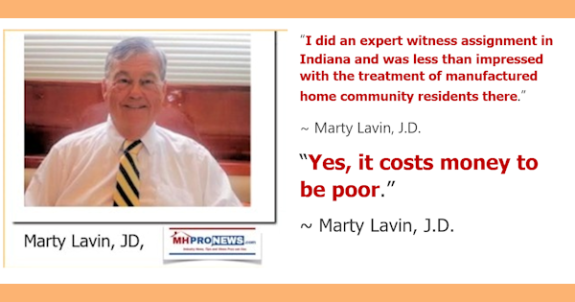
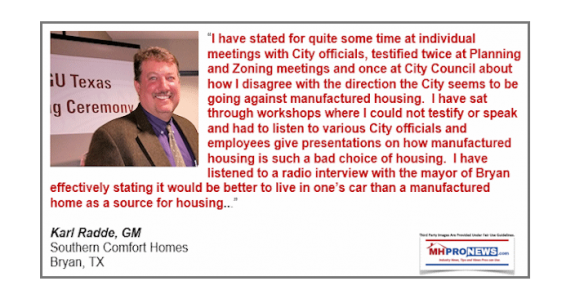
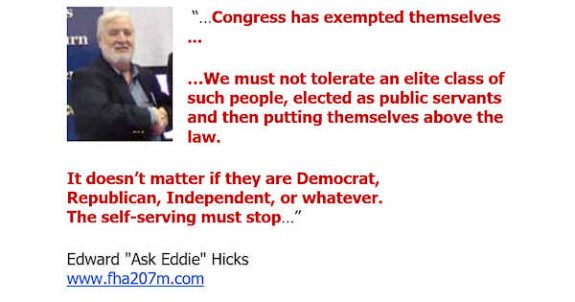
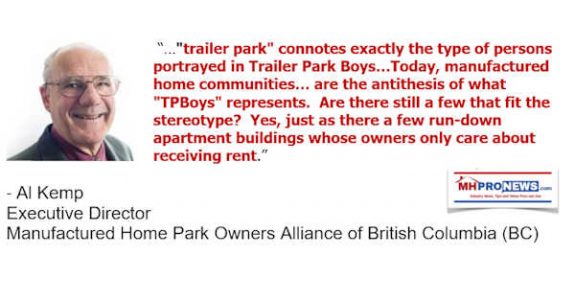
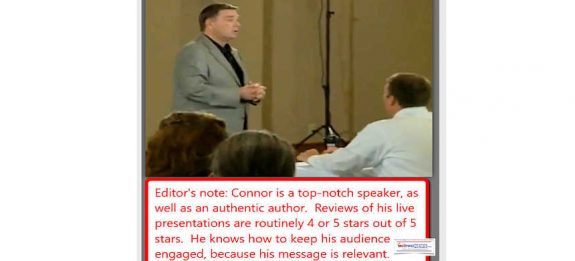
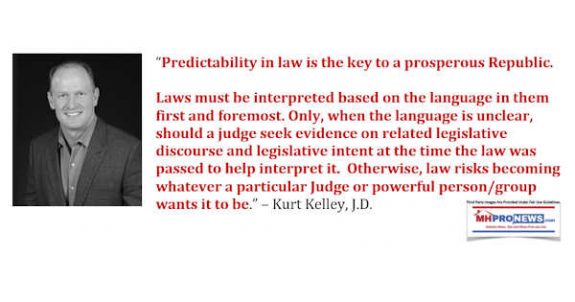
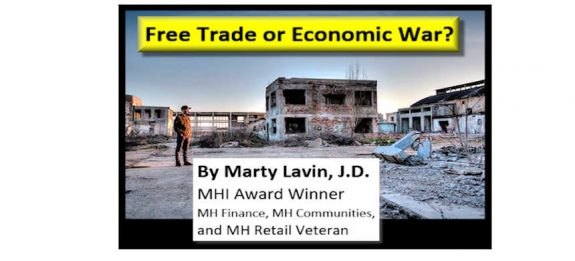
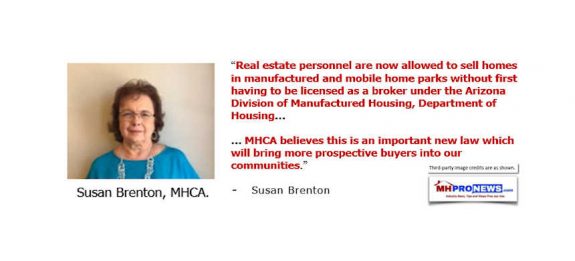
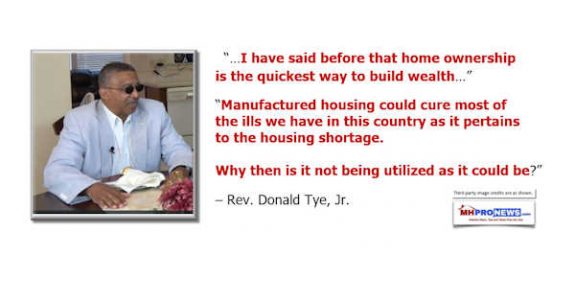
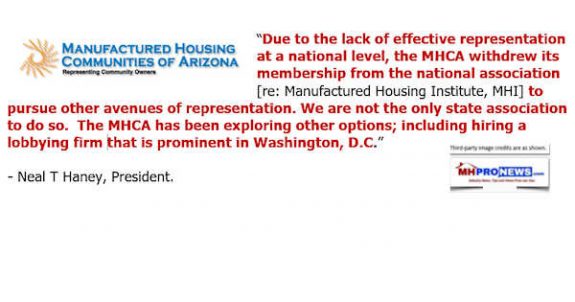
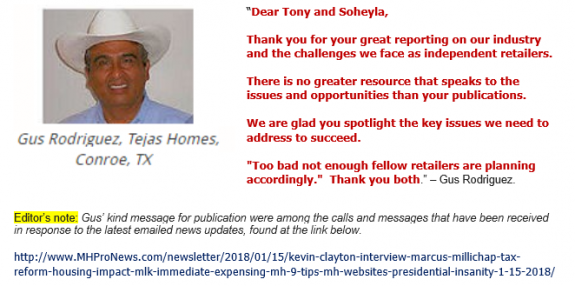
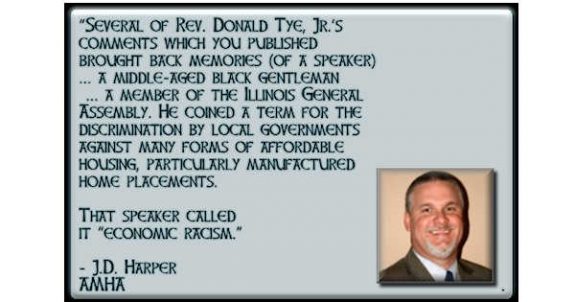
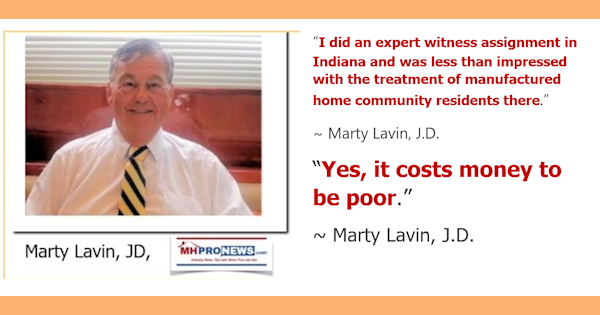
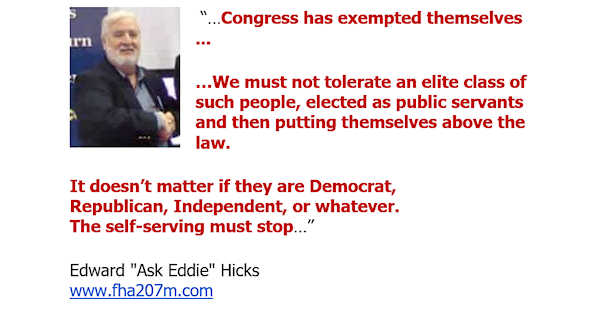
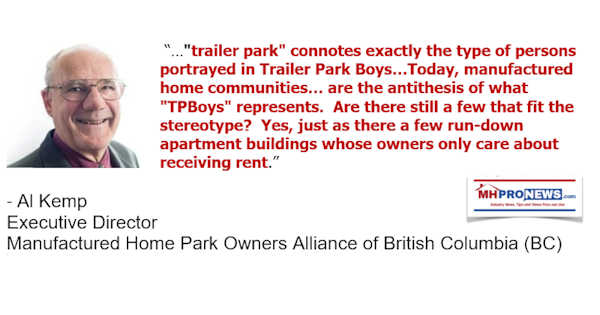
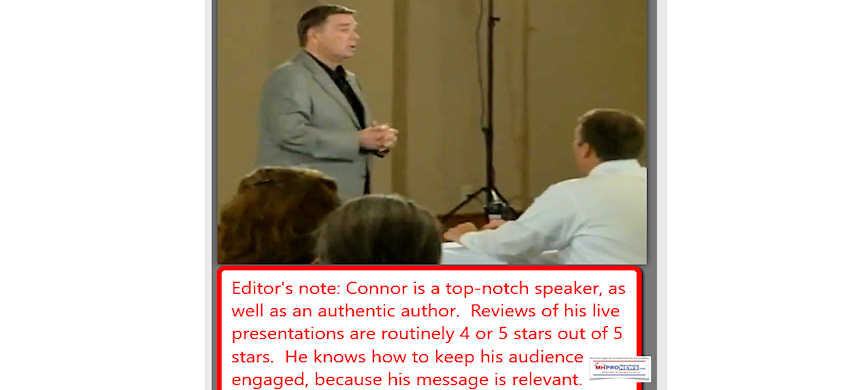
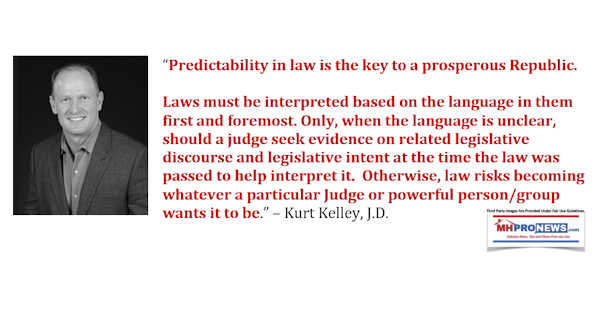
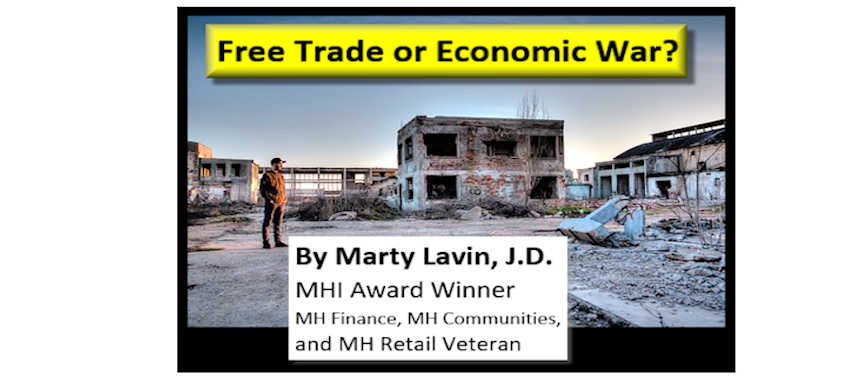
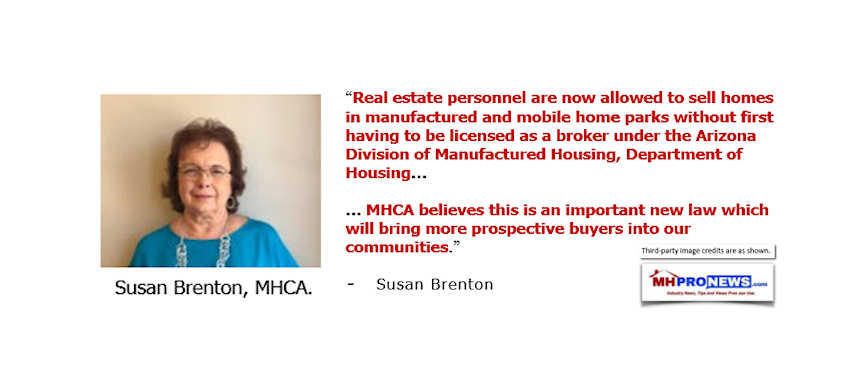
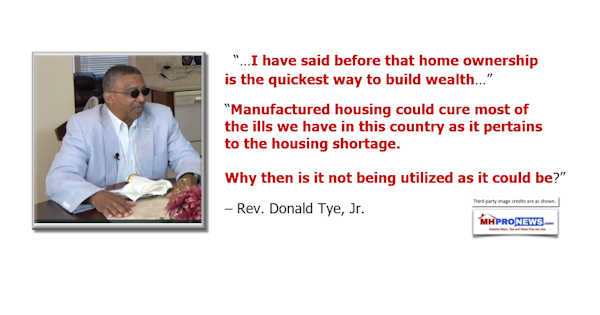
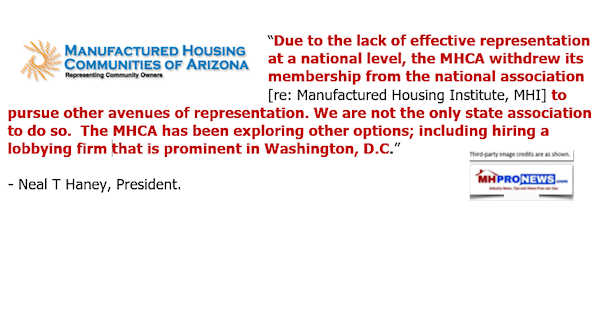
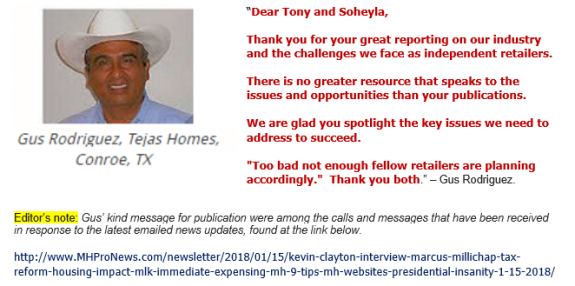
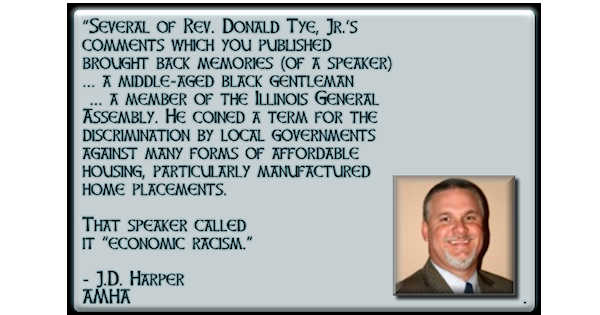
Karl Radde – TMHA, MHI, Southern Comfort Homes – Addressing Bryan City Leaders, Letter on Proposed Manufactured Home Ban
To All Concerned [Bryan City Officials, Others]: As the retail location referenced by Mr. Inderman, I would like to take a moment to address the …